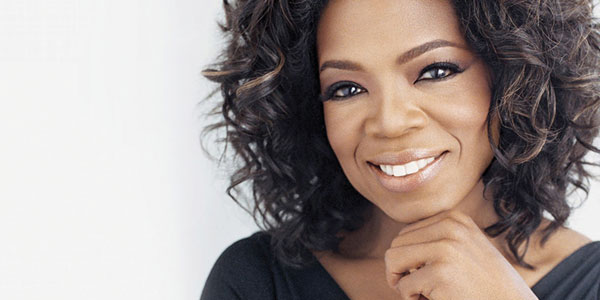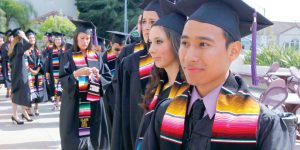
By Jorge Ramos
Someone once asked Oprah Winfrey, the inspirational businesswoman, journalist and actor, this question during an interview: “What do you know for sure?” It caught her off guard, she has said, and she hesitated, not knowing how to respond. Winfrey later transformed this hesitation into an opportunity to think more about her world and what’s real in her life, and she eventually wrote a best-selling book about it.
I was thinking about this story recently, and about the things I know for sure about my life in the United States. I’ve narrowed the ideas down to three. First, technology and social media govern the way we interact with each other. Second, this country and the world are becoming more diversified and multicultural. Third, climate change is out of control, and its effects are seriously disrupting the places we live in.
This month I launched (along with Univision) a new project to broadcast news via Facebook. I’m still a TV news anchor, but this effort is about reaching younger viewers who might not even own a television set and prefer to get their news through social media. We know that viewers these days are transitioning from larger screens to smaller ones; for example, you are probably reading this on your phone or tablet rather than in print.
I am not alone in this digital experiment. Other broadcasters, CNN and ABC News among them, are also creating news programs that are distributed via the Facebook Watch platform. In an age of “fake news’ and so many attacks on the press, we must be capable of maintaining independent and credible journalism streams through social media. Besides, it is easier to get close to people and capture real life situations with mobile phones than it is with cameras, lights, sound systems and recording equipment.
I believe this project will enable us to tap into future news viewing trends. This doesn’t mean that news shows will disappear, but it is becoming increasingly difficult to ask viewers to commit to watching a program every night in order to get the latest news from around the world.
What do I know for sure? That if we want to avoid becoming endangered TV dinosaurs, we must migrate to where the viewers are.
This brings me to my second point. I’ve been traveling all over the United States in the past two months, and I’ve seen an extremely diverse country going through an unstoppable process of change. We’re definitely experiencing a demographic revolution.
In less than three decades, white Americans will no longer be a majority in this country. This is worrisome to many people. It’s like going through your whole life thinking you belong to a single race, then undergoing DNA testing and discovering you belong to a whole variety of ethnic groups. America has just opened the envelope containing its test results, and it’s scared.
But change is irreversible. Shortly after Donald Trump announced that he was running for president, already more than half the babies under a year old in the United States were members of a minority group, according to government statistics.
Something similar is happening worldwide. There are over 250 million immigrants around the world today, including myself. Globalization, the internet, international trade and increasingly porous borders have transformed the planet into a wonderful melting pot of races, accents and ethnicities. Nobody seems to be from a single place or have a single point of origin. We are one and many.
The third thing disrupting us is climate change. Wherever I travel I witness the consequences of a warmer world. Extreme weather seems commonplace now. I recently visited a beach in the Mexican Caribbean, and there were places where I couldn’t get into the sea because of the tons of sargassum seaweed floating on the shoreline.
Near my home in Miami, floods are more frequent now, while midsummer wildfires grow larger in California. Sometimes I wonder whether the entire human race has gone past the point of no return. But these three things I know for sure.
Thanks, Oprah.
_______________________________________________________________________________________________
¿Qué sabes sin lugar a dudas?
La pregunta viene de un incidente que le ocurrió a Oprah Winfrey -la empresaria, la periodista, la actriz, la líder, la inspiradora. Cuenta que en una entrevista le preguntaron: “¿Qué sabes sin lugar a dudas?” Y dice que no supo qué contestar.
Sí, le insistieron ¿qué sabes sobre la vida? Oprah transformó su duda en un momento para aprender algo y luego escribió un libro al respecto (que se convirtió en bestseller).
No se preocupen. Si leen esta columna no tienen que ir a terapia ni hacer una lista de sus momentos más felices. Es algo más concreto. Sólo estaba pensando en las tres cosas que doy por un hecho en mi vida en Estados Unidos. Y concluí esto: una, cómo la tecnología y las redes sociales dominan nuestra interacción con otras personas; dos, cómo este país y el mundo se están convirtiendo es sitios cada vez más diversos y multiculturales; y tres, cómo el cambio climático está fuera de control y afectando gravemente el lugar donde vivimos.
Les cuento. Esta semana lanzamos (junto a Univisión) un nuevo proyecto para hacer noticias en Facebook. Por supuesto, sigo haciendo un noticiero por televisión. Pero este es un esfuerzo para captar a los más jóvenes, a los que ya ni siquiera tienen televisor y a los que prefieren recibir sus noticias a través de las redes sociales. No me queda la menor duda que hay una gigantesca migración de ojos de las pantallas grandes a las más pequeñas. Y la prueba es que es mucho más probable que estés leyendo esto en un celular o en una tableta electrónica que en papel.
No estoy sólo en este experimento digital. Hay varias organizaciones -como CNN y ABC News- que también están creando programas de noticias que sólo se pueden ver por la nueva plataforma de Facebook Watch. En una era de fake news y de tantos ataques a la prensa, es esencial que haya un periodismo independiente y creíble en las redes sociales. Además, es mucho más fácil acercarse a la gente y a la vida real con un celular que con cámaras, luces, sistemas de sonido y un equipo de grabación.
Con este proyecto, creo, estamos rascando el futuro. Esto no significa que los noticieros por televisión van a desaparecer. Pero resulta cada vez más difícil pedirle al televidente que haga una cita contigo cada noche para saber qué pasa en el mundo. Para no ser dinosaurios televisivos en peligro de extinción, hay que ir a donde está la audiencia.
Y esto me lleva al segundo punto. Me la he pasado viajando por todo Estados Unidos en los últimos dos meses y me he encontrado un país extraordinariamente diverso y en un imparable proceso de cambio. Es una verdadera revolución demográfica.
En menos de tres décadas los blancos dejarán de ser mayoría y todos seremos parte de una minoría. Nos está pasando como a esas personas que se mandan hacer un análisis genético de ADN, creyendo que son de una sola raza, y al llegarles el resultado se dan cuenta que son de muchos grupos étnicos. Bueno, Estados Unidos acaba de abrir el sobre y tiene cara de asustado.
Pero el cambio es irreversible. Poco después de que Trump anunciara su candidatura, más de la mitad de todos los bebés menores de un año ya eran miembros de una minoría.
Algo parecido ocurre en el resto del mundo. Ya somos más de 250 millones de inmigrantes. La globalización, la internet, el comercio internacional y las fronteras cada vez más porosas han convertido al planeta en un maravilloso concierto de razas, colores, acentos y mezclas. Nadie parece ser de un solo lugar ni tener un solo origen. Somos uno y muchos. Como los alebrijes.
El tercer asunto que nos afecta a todos es el cambio climático. A donde viajo veo las consecuencias de un planeta que se calienta. Los climas extremos son lo cotidiano. Acabo de regresar de una playa en el caribe mexicano y había partes en las que no me podía meter al mar debido a las toneladas de sargazos que estaban flotando.
Cerca de mi casa en Miami las inundaciones son cada vez más frecuentes, al igual que los fuegos en pleno verano en California. Y muchas veces me pregunto si, como grupo, los humanos hemos pasado ya del punto de no retorno. Volver a enfriar los polos suena a misión titánica y de superhéroes.
Estas son las tres cosas que sé.
Gracias Oprah.









